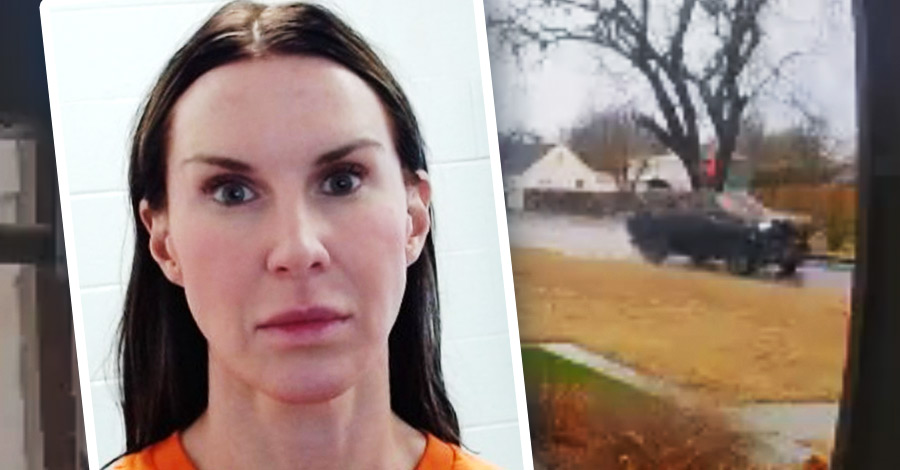
Earlier this week, two Oklahoma legislators announced they will introduce a "Merry Christmas Bill" during the 2014 legislative session to help fight the "War on Christmas." The bill will protect the rights of students and educators to celebrate all the traditional Christmas clichés that make us feel warm and fuzzy; rights, which at last check, students and educators already have.
From the obscure local political blog The McCarville Report:
In what members of the Legislature describe as a “defensive effort,” a measure is being filed today to defend the traditional holiday seasons of Christmas and Hanukkah.
Reps. Bob Cleveland, R-Slaughterville, and Ken Walker, R-Tulsa, are filing a bill for the upcoming session. House Bill 2317 would call for more protections to go into place regarding Christmas and how it is celebrated in schools.
Called the “Merry Christmas” bill, the measure would allow for schools to celebrate Christmas and use religious-based imagery such as nativity scenes alongside other displays such as Christmas trees. It would also allow school faculty and staff to use traditional greetings such as “Merry Christmas” or “Happy Hanukkah” without fear of reprisal.
This is an excellent idea. If this bill becomes a law, hopefully we'll see an end to terrible events like the infamous Wiley Post Elementary School Christmas Assembly riots of 2008, where first and second graders were arrested for singing modern renditions of Silent Night, The First Noel and Little Drummer Boy. Now, after years of persecution, students across the state can say "Merry Christmas" to a friend or teacher without fear of detention or being sent to the assistant principal's office. Hallelujah!!!
Okay, I made all that up. I don't think a kid has ever been suspended, or a teacher ever fired, for saying Merry Christmas at school. In fact, I think they already have the right to celebrate Christmas. It kind of makes you wonder why the bill was even introduced. Here's what Ken Walker, R-Tulsa, had to say about it:
“The purpose of this Oklahoma Merry Christmas bill is to put a beacon of light, a safe harbor if you will, in the pages of the statutes so that our children, our parents and our teachers can run to a lighthouse whose light shines boldly from the pages of our state’s law books,” Walker said. “It will declare that we have a right to express our core beliefs and celebrate winter traditions without fear of lawsuit, retribution or reprisal.”
Oh holy night, did Tommy Lee Jones write that on the set of Lincoln!? Beacon of light? Safe harbour? Run to lighthouse whose light shines boldly from the pages of our state’s law books? That's more hammy than Christmas dinner. Walker may want to lay off of the rum and Braum's eggnog.
Anyway, I emailed our legal team at the Oklahoma chapter of the ACLU for their thoughts on the bill. Here's what Brady Henderson, ACLU Legal Director, had to say:
The Merry Christmas Bill is an interesting animal. While I have not seen the exact proposed language in the Oklahoma bill, we are presuming it is the same or very similar to the bill recently passed in Texas. If so, than the bill is likely to have little to no legal effect on the rights of students or school staff, as the balancing of these religious free exercise and establishment clause rights comes mainly from the First Amendment to the United States Constitution. By law, a state statute is trumped by the Constitution, so by definition this bill cannot significantly enlarge or diminish anyone's religious rights. All it can really do is either redundantly "defend" rights that are already protected by higher law, or it can give schools an empty promise of protection for unconstitutional practices.A great example of such a practice would be installing nativity scenes as objects of worship. That's not to say that there is no place for the nativity and depictions of it in public schools. Even without the "protection" of the Merry Christmas Bill, schools are not prohibited from teaching students about what holidays are about and what their origins are. Schools routinely have curricula that talk about the origins of Christmas, Hanukkah, Ramadan, Easter, Halloween, Thanksgiving, and countless others. Like most holidays, Christmas has religious roots but also cultural and historical features.The problem comes when schools or individual faculty move from teaching to indoctrination. In every example of major school/Christmas litigation that I recall, it was not a matter of a school teaching about Christian beliefs or calling a Christmas tree a Christmas tree that was the problem, but rather doing and/or saying things that sent the message that Christian religious beliefs were the right and true ones, and anything inconsistent with these had less value.The Merry Christmas Bill does not change any of that legal standard. It also has a couple of major drawbacks: The first is that it can encourage school districts to violate the Constitution without actually providing any protection for them in court. No matter what the state statutes say, a school district that unconstitutionally endorses religion will lose in court, and it is that local school district, and not the state legislature, that will foot the bill. Hence the legislators behind the bill come away with the political benefits, while local schools bear all the risks and consequences. Litigation over these types of issues can routinely result in a six-figure bill.The second drawback to the Merry Christmas Bill is that it legitimizes government encroachment into personal religious choices. The idea that my child needs state government permission to wish his friend a "Merry Christmas" is ridiculous, and yet it is exactly the idea on which the bill is based. The Constitution guarantees our free exercise of religion and freedom of speech precisely so the government does not then have to decide what is and is not a permissible thing for a person to think, pray, or wish. The more we as citizens are told that we should look to politicians to protect our religious beliefs, the more power the government has over our churches, our communities, and our consciences.Let me know if you more specific questions about the Bill. We will be paying close attention mainly to ensure that we are there to communicate accurate information to school districts and local governments so as to reduce the risk of costly wastes of public resources if the Bill passes.
So basically, the legislation creates a non-solution to a manufactured problem. That makes you question the author's true intent. Is the bill designed to protect students and teachers, or simply advance the political career of an ambitious lawmaker who wants a feather in his hat – or candy in his stocking – when it comes time to run for reelection. I'll go with protecting students, because there's no way that a conservative lawmaker would exploit the birth of Christ and the Christmas holiday for political gain. That would be hypocritical, and totally undermine the "reason for the season." They'd never do that, right?







